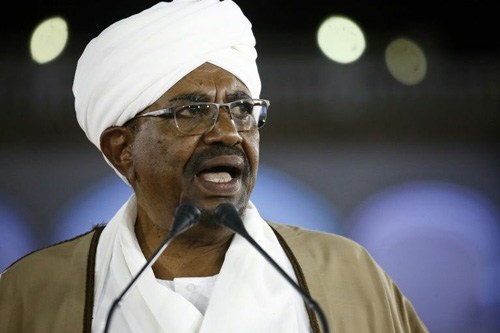Khartoum
Sudan’s former president Omar al-Bashir, ousted amid a popular pro-democracy uprising last year, went on trial Tuesday over the military coup that brought him to power more than three decades ago.
Bashir, 76, and his co-accused could face the death penalty if convicted over the 1989 Islamist-backed overthrow of the democratically elected government of prime minister Sadek al-Mahdi.
It is the first time in the Arab world’s modern history that the architect of a coup is tried for plotting a putsch, although the man dubbed the true brain behind it, Hassan Turabi of the National Islamic Front, died in 2016.
Along with Bashir, 27 other men from the ousted regime were in the dock at the Khartoum court house, which was heavily guarded by police outside with AK-47 assault rifles, batons and tear gas grenades.
“This court will listen to each of them and we will give each of the 28 accused the opportunity to defend themselves,” said the presiding judge, Issam al-Din Mohammad Ibrahim.
Bashir, who was kept with the other accused in a caged area of the courtroom, did not speak during the trial’s opening session which ended after about one hour.
The judge said the court was not large enough to accommodate the more than 190 defence lawyers and adjourned the hearings until August 11. Outside the courthouse, dozens of family members of the defendants noisily rallied against the trial, many shouting “Allahu Akbar (God is greatest)”.
“They did not allow the majority of the families to attend the trial although we presented our requests three days ago,” Mohammad Nafaa, the son of a former agriculture minister, told AFP. The trial comes as Sudan’s post-revolution transitional government has launched a series of reforms in hopes of fully rejoining the international community.
Sudan has also pledged in principle to hand over Bashir to the International Criminal Court to face trial on charges of war crimes and genocide in the Darfur conflict, which left 300,000 people dead and displaced 2.5 million in a scorched earth campaign against a 2003 insurgency.—AFP










